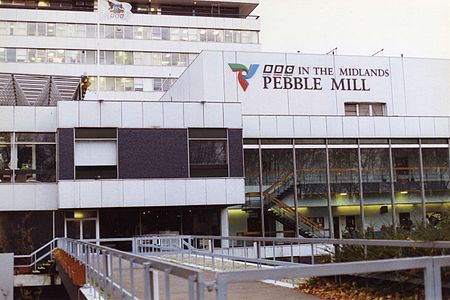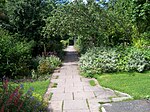Pebble Mill Studios

Pebble Mill Studios was the BBC's television studio complex located in Edgbaston, Birmingham, England, United Kingdom, which served as the headquarters for BBC Birmingham from 1971 until 2004. The nine-acre site was opened by Princess Anne on 10 June 1971, and in addition to the studios contained two canteens, a post office, gardens, a seven-storey office block, and an outside broadcasting (OB) base. As well as being the home of Midlands Today and BBC Radio WM, programmes produced at Pebble Mill included Pebble Mill at One, The Archers, Top Gear, Doctors, Telly Addicts, Howards' Way, Juliet Bravo and Gardeners' World. Pebble Mill Studios closed in 2004 and was demolished in September 2005; BBC Birmingham is now located in The Mailbox shopping complex in Birmingham city centre.
Excerpt from the Wikipedia article Pebble Mill Studios (License: CC BY-SA 3.0, Authors, Images).Pebble Mill Studios
Pebble Mill Road, Birmingham Selly Park
Geographical coordinates (GPS) Address Nearby Places Show on map
Geographical coordinates (GPS)
| Latitude | Longitude |
|---|---|
| N 52.4505 ° | E -1.9133 ° |
Address
Circle Rehabilitation Hospital Birmingham
Pebble Mill Road
B5 7TR Birmingham, Selly Park
England, United Kingdom
Open on Google Maps







